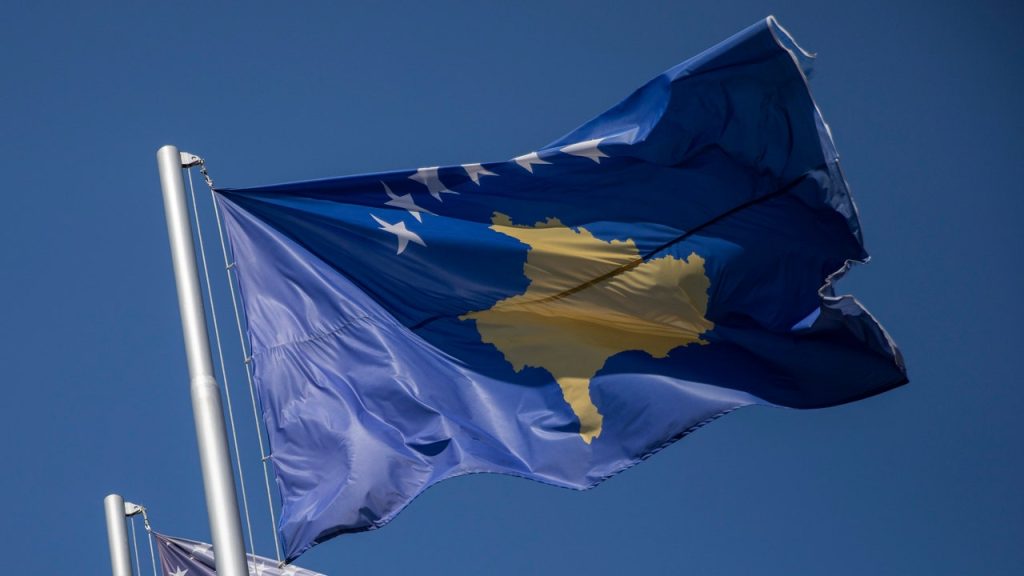Kosovo police have closed six branches of a Serbia-licensed bank as part of a decision to ban the use of the Serbian dinar currency in the country. This move has escalated tensions with neighboring Serbia, as Kosovo announced that areas dominated by the ethnic Serb minority must adopt the euro currency instead. The government initially postponed the implementation of this decision due to pressure from the European Union and the United States, who were concerned about the impact it would have on the ethnic Serb minority in northern Kosovo. Most of Kosovo already uses the euro, despite not being part of the European Union.
Ethnic Serbs in parts of Kosovo’s north rely on the Serbian government for financial support, often receiving it in dinars in cash. The European Union and the United States are urging both Serbia and Kosovo to implement agreements made between Serbian President Aleksandar Vučić and Kosovo Prime Minister Albin Kurti last year. These agreements, reached in February and March, are part of EU-facilitated normalization talks that have struggled to make progress. Tensions between the two countries have escalated following a shootout in September between masked Serb gunmen and Kosovo police, resulting in four deaths.
Both Serbia and Kosovo have expressed a desire to join the European Union, but the bloc’s foreign policy chief, Josep Borrell, has warned that their unwillingness to compromise is jeopardizing their chances of accession. The history between Serbia and Kosovo is complicated, with a war being fought in 1998-99 between Serbian forces and ethnic Albanian separatists in what was then the province of Kosovo. Approximately 13,000 people, mostly ethnic Albanians, died during this conflict until a 78-day NATO bombing campaign pushed Serbian forces out. Kosovo declared independence in 2008, a move that Serbia does not recognize.
The closure of the Serbian bank branches in Kosovo is another development that has intensified the longstanding tensions between the two countries. With Kosovo’s decision to ban the use of the Serbian dinar, it has highlighted the divide between the ethnic Serb minority in the north and the rest of the country, which predominantly uses the euro. The European Union and the United States continue to push for dialogue and compromise between Serbia and Kosovo, emphasizing the importance of implementing agreements that have been reached in previous discussions.
As Serbia and Kosovo both aim to join the European Union, their inability to find common ground and resolve longstanding issues is hindering their progress towards EU membership. The closure of the Serbian bank branches in Kosovo is just one example of the challenges faced by both countries in finding a path forward. With tensions remaining high and normalization talks stalled, the future of relations between Serbia and Kosovo continues to be uncertain, with the European Union playing a key role in mediating the conflict and encouraging dialogue.


